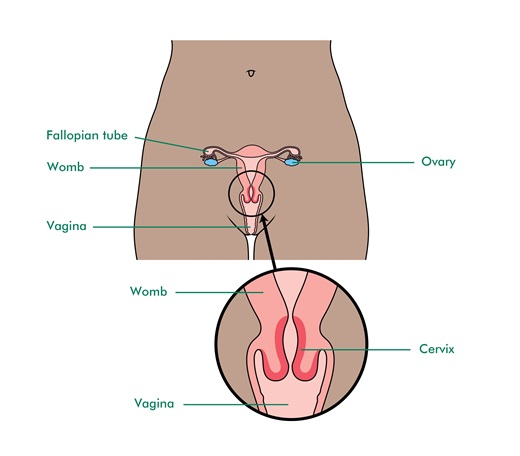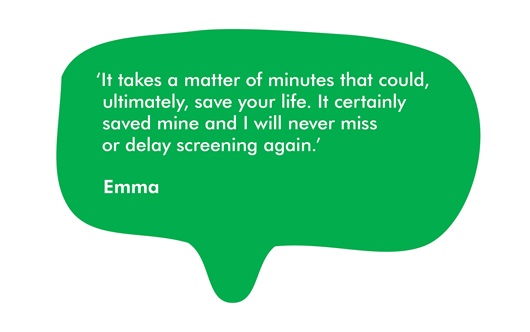It’s Cervical Screening Awareness Week. Our information development nurse Hilary answers some common questions and explains what you need to know about screening if you have a cervix.
What is cervical screening?
Cervical screening is a simple test that checks for abnormal changes in the cells of the cervix. That’s the lower part of the womb (uterus) that joins to the top of the vagina.

Why should I have cervical screening?
Abnormal cell changes in the cervix are common and often improve naturally. But sometimes they can develop into cancer of the cervix (cervical cancer).
Abnormal changes cause no symptoms. So you won’t know if you are affected unless you have cervical screening.
If you don’t have a cervix, you don’t need screening. This includes if you are a trans woman or you have had your cervix removed. If you have had surgery to the cervix, vagina or womb but you are not sure what your operation involved, your GP can check your medical records.
When should I go for cervical screening?
The NHS offers regular cervical screening from the age of 25 to 64 to women who are registered with a GP. You should automatically receive a letter when your screening is due. Usually a nurse or doctor can do the cervical screening test for you at your GP or sexual health clinic.
If you are a trans man and still have a cervix, you should have screening too. However, you may not be sent an invitation if you are registered as male with your GP. Let your GP know if you want to have cervical screening and they’ll arrange this for you.
I just really don’t love the idea of having a cervical screening test…
Try not to worry, that’s a normal reaction! It might help to read more about what the screening test involves. It is a personal procedure and you certainly wouldn’t be the first to feel embarrassed or awkward about it. But the fact is it only takes 5 minutes. And research shows that it is an effective way of preventing cervical cancer.
If you are struggling to cope with the thought of having a test like this, talk it through with someone. Your GP or practice nurse can answer any questions and explain ways they can make things easier for you.

Okay. I’ve had the test but I’m confused by the results.
Test results can be confusing and stressful. But if you get an abnormal test result, this does not mean you have cancer. You may need further tests to find out more about the type of abnormal cells you have. And sometimes, you might then need treatment to deal with abnormal cell changes. Remember, the aim is to stop cancer before it develops.
We can help with any concerns you might have. Have a look at our online or print information about understanding cervical screening results, or give us a call on 0808 808 00 00.
To see what else Macmillan's cancer information team has been blogging about, please visit our blog home page! You can subscribe to receive our blogs by email or RSS too.
We're with you every step of the way
The Macmillan team is here to help. Our cancer support specialists can answer your questions, offer support, or simply listen if you need a chat. Call us free on 0808 808 00 00.
Comments? Feel free to add them below (you need to be logged in).
Keep in touch Follow Macmillan’s cancer information team on Twitter @mac_cancerinfo
Whatever cancer throws your way, we’re right there with you.
We’re here to provide physical, financial and emotional support.
© Macmillan Cancer Support 2026 © Macmillan Cancer Support, registered charity in England and Wales (261017), Scotland (SC039907) and the Isle of Man (604). Also operating in Northern Ireland. A company limited by guarantee, registered in England and Wales company number 2400969. Isle of Man company number 4694F. Registered office: 3rd Floor, Bronze Building, The Forge, 105 Sumner Street, London, SE1 9HZ. VAT no: 668265007